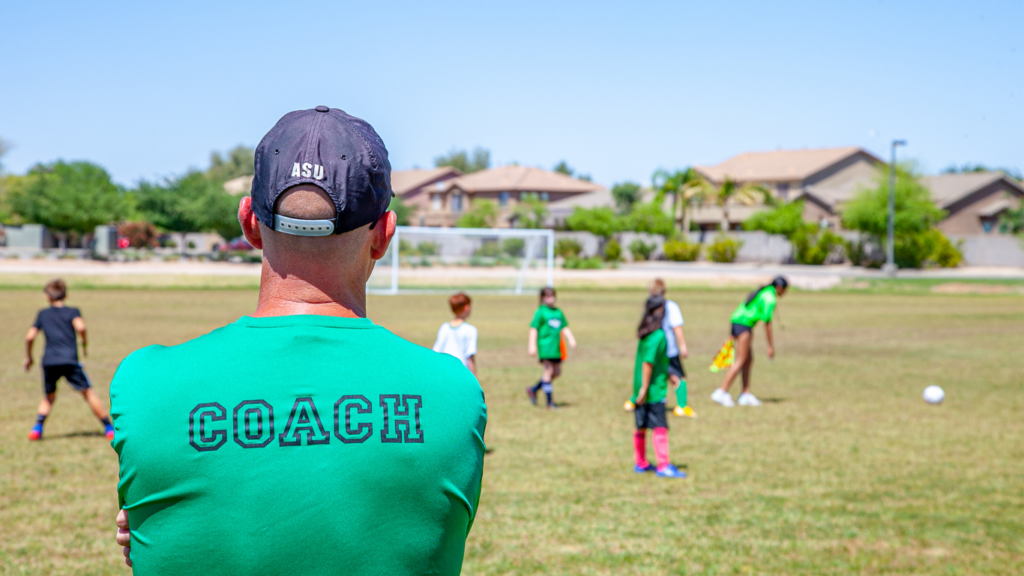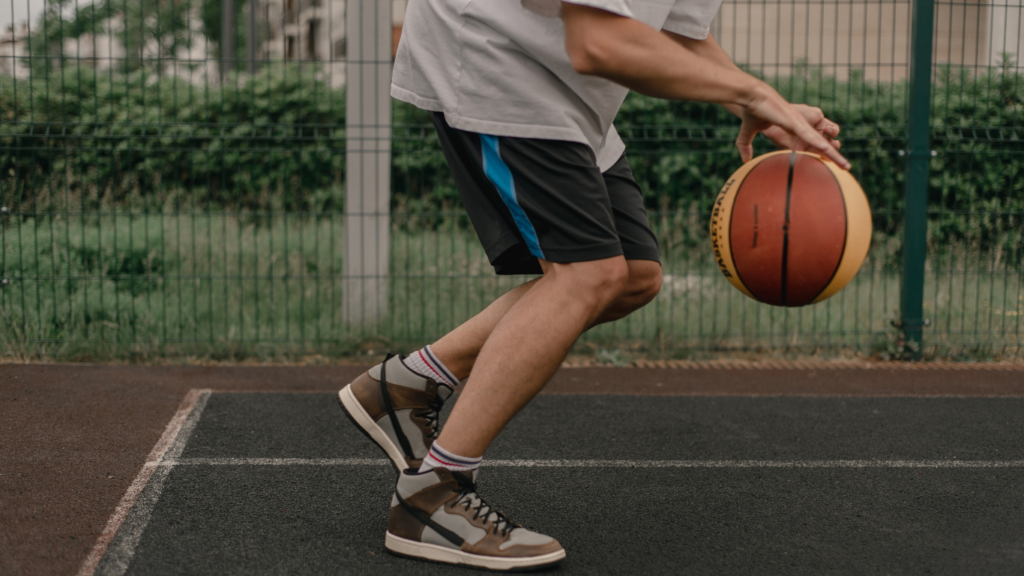Importance of Seeking Advice from Coaches
Coaches possess a wealth of experience and knowledge in their respective sports disciplines. They’ve dedicated years to understanding the nuances of athletic performance, making them invaluable resources. By seeking their advice, athletes can gain insights that they might not achieve through self-training alone. For instance, a coach can provide specific feedback on technique improvements that aren’t easily noticeable to the untrained eye.
Engaging with a coach allows athletes to receive personalized training plans tailored to their strengths and weaknesses. General workout routines often fail to address individual needs. Coaches can identify these unique requirements. For example, a coach might notice that an athlete needs more agility training to complement their existing strength exercises.
Additionally, coaches offer motivational support critical for sustained improvement. It’s easy to become discouraged without proper guidance. Coaches can provide encouragement and accountability, helping athletes push through tough training sessions. This motivational boost often leads to significant progress over time.
Through one-on-one interactions, athletes can also learn mental strategies to enhance their performance under pressure. Coaches often teach techniques for managing stress and staying focused. Implementing these strategies can make a difference during high-stakes competitions. For instance, learning how to control breathing and maintain focus can help an athlete stay calm and perform optimally when it counts the most.
Ultimately, the advice and support from a coach can accelerate an athlete’s development, making it an essential aspect of achieving peak performance.
Physical Conditioning
Physical conditioning forms the bedrock of athletic improvement. Coaches stress that excelling in sports demands a solid foundation built through targeted physical exercises.
Strength Training
Strength training significantly enhances athletic performance. Focusing on muscle development improves overall power and endurance. Coaches recommend compound movements like:
- squats
- deadlifts
- bench presses
For instance, squats target multiple muscle groups simultaneously, increasing functional strength. Combine these exercises with a structured plan to maximize gains. Schedule workouts to allow for muscle recovery, avoiding overtraining to prevent injuries.
Cardiovascular Fitness
- Cardiovascular fitness boosts stamina and recovery rates.
- Coaches advise incorporating aerobic exercises such as running, cycling, and swimming. For example, interval training can amplify cardiovascular benefits by alternating high-intensity bursts with rest periods.
- Engage in sustained aerobic activities thrice weekly to maintain heart health and improve overall endurance.
- Coaches also highlight the importance of monitoring heart rate to ensure optimal training intensity, using devices like heart rate monitors for precise tracking.
- Physical conditioning, anchored by strength training and cardiovascular fitness, underpins the path to athletic excellence.
Combining these strategies as part of a comprehensive training plan enhances performance and resilience on the field.
Technical Skills
Mastering technical skills is crucial for any athlete aiming to excel. These skills form the foundation of advanced gameplay and can significantly impact performance levels.
Dribbling and Ball Control

Effective dribbling and ball control enhance maneuverability on the field. Coaches recommend practicing various dribbling techniques, such as the inside-outside dribble and the crossover. Setting up cone drills helps simulate game situations, improving agility and ball-handling under pressure. Balance is key; maintaining a low center of gravity aids in quick direction changes. Consistent practice with both feet develops ambidexterity, a vital asset for advanced dribbling skills.
Shooting Accuracy
Shooting accuracy determines the outcome of scoring opportunities. Coaches stress the importance of proper technique to increase shot precision. Key aspects include body positioning, follow-through, and eye alignment. Practicing repetitive shooting drills from different angles and distances helps in honing aim. Using targets during practice sessions can provide immediate feedback on shot placement. Balancing power and control ensures that shots are both fast and accurate, increasing the chances of scoring in competitive situations.
Mental Preparation
Mental preparation is crucial for athletic success. Coaches often stress the importance of a strong mindset to handle the challenges of sports.
Focus and Concentration
Maintaining focus and concentration during practice and competition can significantly enhance performance. I recommend breaking tasks into smaller, manageable steps to make them less overwhelming. For instance, during drills, concentrate on one specific skill at a time, such as footwork or hand positioning.
Use visualization techniques by imagining successful plays to mentally prepare for real scenarios. Establishing a pre-game routine can also help set a focused mindset. For example, many athletes listen to specific music or perform stretching exercises to get into the zone.
Handling Pressure
Managing pressure is essential during high-stakes moments. I suggest practicing mindfulness techniques like deep breathing or meditation to stay calm under pressure. Coaches often advise players to focus on the process rather than the outcome.
This means concentrating on executing a play correctly instead of worrying about the final score. Developing a strong support system with teammates and coaches can provide encouragement and reduce stress. During intense games, breaking the competition into smaller sections or quarters can make it easier to handle and reduce anxiety.
Game Strategies
Utilizing well-planned game strategies can significantly enhance performance. I’ll discuss key offensive tactics and defensive techniques to elevate your game.
Offensive Tactics
Improving offensive play boosts scoring opportunities. I recommend quick ball movement to create space. Pass frequently, making defenders chase the ball. Incorporate give-and-go plays to exploit defensive gaps.
Effective communication is essential. Talk with teammates to coordinate attacks. Use visual cues like hand gestures to signal intended plays.
Focus on conditioning to maintain a high tempo. A fit offense tires out defenses, creating higher quality scoring chances as the game progresses.
Defensive Techniques
Solid defense forms the backbone of a successful team. Always maintain proper positioning, staying between your opponent and the goal. Use your body to guide attackers away from dangerous areas.
Communication is key here too. Constantly talk with teammates about switches, screens, and potential threats. Keep everyone aware of their responsibilities.
Anticipate the opponent’s moves by reading their body language. This gives you a split-second advantage for interceptions or blocks. Practice these techniques regularly to make them second nature.
Combining these offensive and defensive strategies with advice from experienced coaches leads to significant improvement in overall game performance.
Consistency and Practice
Regular practice and staying consistent are key to improving your game. Coaches emphasize the importance of continual, focused training to see progress over time.
Effective Drills
Drills help athletes refine their skills and build muscle memory. For example, basketball players improve ball handling with cone drills, emphasizing crossovers and control. Soccer players boost agility and footwork with ladder drills, focusing on speed and precision. Swimmers enhance stroke technique with resistance bands, improving endurance and strength. Each drill targets specific skills, ensuring balanced development.
Setting Practice Goals
Setting clear, achievable practice goals is crucial for sustained improvement. Goals must be specific and measurable to track progress. For instance, a tennis player might aim to hit 50 serves within the service box each session. A runner could target a 10-second reduction in their mile time over a month. Regularly reviewing and adjusting these goals keeps practice sessions focused and productive, fostering incremental improvements.


 Amelie Glover played a pivotal role in shaping the success of News Flip Network through her expertise and dedication. With a keen eye for detail, she focused on ensuring the platform’s content flows smoothly, making it both engaging and informative. Glover’s efforts in organizing the site’s structure and managing editorial tasks helped create a seamless user experience, enhancing the accessibility of news for readers around the world.
Amelie Glover played a pivotal role in shaping the success of News Flip Network through her expertise and dedication. With a keen eye for detail, she focused on ensuring the platform’s content flows smoothly, making it both engaging and informative. Glover’s efforts in organizing the site’s structure and managing editorial tasks helped create a seamless user experience, enhancing the accessibility of news for readers around the world.